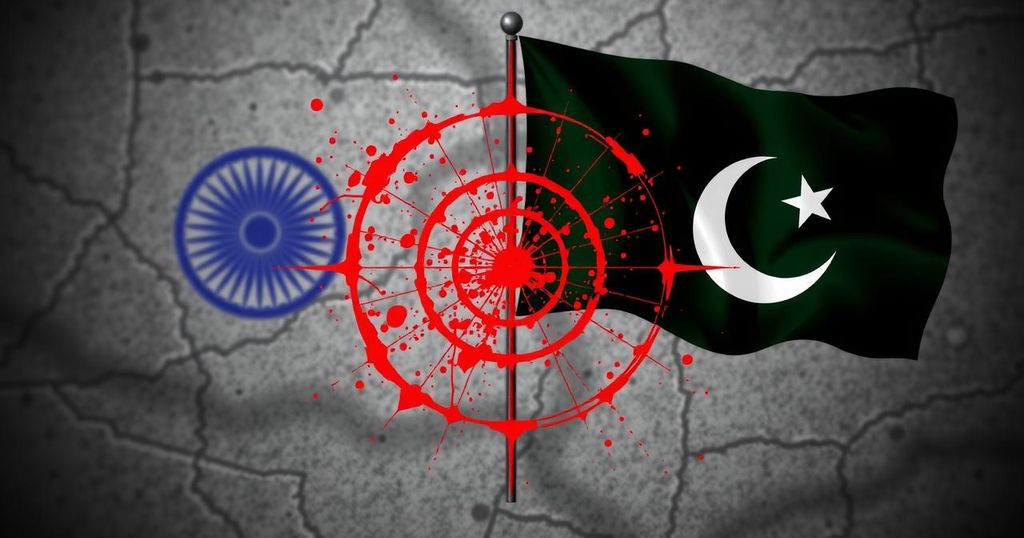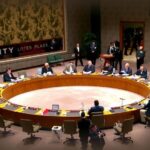Conflicts
Politics
AN, ANJUM, ASIA, CANADA, CENTRAL INTELLIGENCE, DUBAI, EUROPEAN UNION, INTERNATIONAL RELATIONS, ISI ) DIRECTORATE, MIDDLE EAST, MODI, NAD, NATIONAL SECURITY, NORTH AMERICA, OTTAWA, RESEARCH AND ANALYSIS WING, SECURITY, STEPHAN BLANCKE, TERRORISM, UNITED ARAB EMIRATES, WASHINGTON POST, WEST
Dante Raeburn
India Allegedly Behind Covert Assassination Campaign in Pakistan
A Washington Post report claims that the Indian government has initiated a covert assassination program targeting individuals in Pakistan, allegedly facilitated by RAW and authorized by Prime Minister Modi since 2021. The program reportedly focuses on figures associated with designated terrorist organizations, incorporating a complex network of Middle Eastern intermediaries and informal payment systems. The U.S. intelligence community has been informed of these operations, yet no significant action has followed.
A recent article in The Washington Post alleges that the Indian government is engaged in a systematic campaign of targeted assassinations deep within Pakistan, purportedly orchestrated by the Research and Analysis Wing (RAW), India’s main external intelligence agency. The report suggests that this covert operation was authorized by Prime Minister Narendra Modi, who has reportedly provided consistent support for the initiative since his re-election in 2021. Since that time, there have been at least six confirmed assassinations in Pakistan that exhibit characteristics aligning with RAW’s methods, raising concerns about the implications of such activities on international relations.
The article outlines that the targeted killings have largely focused on individuals associated with militant groups like Jaish-e-Muhammad and Lashkar-e-Taiba, organizations that have been designated as terrorist entities by numerous Western nations. Given this context, Western countries, including the United States, have shown reluctance to confront India publicly regarding these alleged violations of international law. The report also indicates that Pakistan’s intelligence agency, the Inter Services Intelligence (ISI), has communicated its concerns to U.S. officials regarding these extra-territorial operations, although these warnings have seemingly resulted in little to no decisive action from the U.S.
RAW’s operations are thought to be facilitated through a complex network of intermediaries based primarily in the Middle East, notably Dubai, signaling a highly organized and secretive approach to conducting these operations. Rather than direct involvement, payments to operatives are purportedly channeled through informal hawala networks, implicating a wider international logistical framework in these activities. The implications of these allegations on geopolitical stability and security in South Asia are profound, raising pertinent questions about the future of diplomatic relations within the region and with Western allies.
The topic of covert assassination operations has gained considerable attention in recent years, particularly concerning allegations against nations for conducting extraterritorial activities. The rising tensions between India and Pakistan, both nuclear-armed rivals with a long history of conflict, provides a fraught backdrop to the accusations presented in the article. The intelligence activities of various nations often involve ethical complexities, sparking debates around international laws governing state-sponsored violations of sovereignty. The context of prior controversies, such as the Indian assassination program targeting Sikh leaders in Canada, further complicates the narrative surrounding India’s involvement in covert operations.
In summary, the allegations of an Indian-led assassination program within Pakistan, as reported by The Washington Post, highlight a troubling trend in state-sponsored violence that raises serious international law considerations. With Prime Minister Modi’s government reportedly backing these actions and the reluctance of Western powers to hold India accountable publicly, the dynamic between South Asian nations may further deteriorate. The operational methodologies employed by RAW, coupled with their implications, warrant ongoing scrutiny and dialogue within the international community.
Original Source: intelnews.org








Post Comment